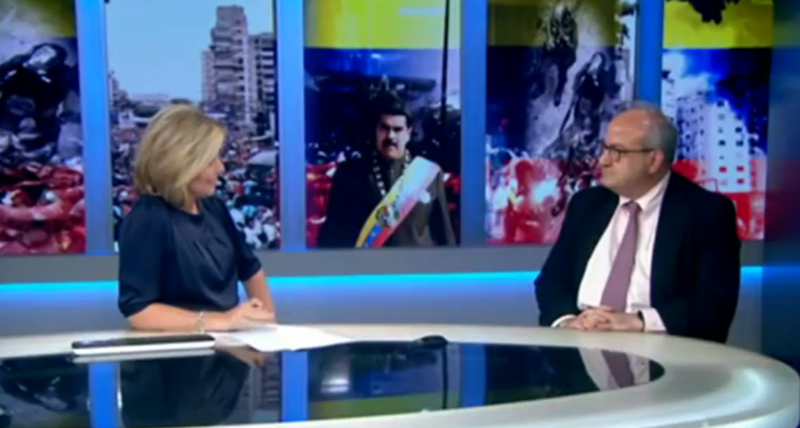Obama & Latin America: New Beginnings, Old Frictions
Today, signs of frustration are unmistakable in Washington and in many Latin American capitals, despite Obama’s immense personal appeal and the continued promise of a more productive partnership.
Michael Shifter joined BBC World News America on July 27 to discuss the then-upcoming Constituyente in Venezuela. Shifter talked about this vote as one of the main watershed moments in the almost 20 years of Chavismo in the Bolivarian country. Furthermore, Shifter spoke on the rationale behind President Maduro’s decision to hold this unconstitutional vote. The interview concluded with a conversation about the current state of the Venezuelan economy as it continues to worsen each day the political crisis continues.
“In the story of Venezuela that has been going on for nearly two decades, there have been lots of turning points and critical moments but this is really, I think, very, very crucial beyond all others because the aim of the government is to try to rewrite the Constitution, the 1999 Constitution, Hugo Chavez’s Constitution, in which case the National Assembly, which is the only legitimate elected body in the country, would be eliminated, dissolved, which would make Venezuela a dictatorship.”
“There is no pulling back (from the vote). There was some hope that Maduro might rethink because of the pressure on the streets, the international pressure, the threat of sanctions, broader economic sanctions and the United Sates but I think he’s dug in and it’s going to be very hard for him to pull back at this point.”
“It’s unclear whether they (individual sanctions) will have much impact in resolving the crisis, which is the main focus. So far there’s no sense that the government is responding to those sanctions.”
“All the polls suggest that if he (Maduro) went to elections, which are scheduled according to the current Constitution, he would lose overwhelmingly. He’s very unpopular and he doesn’t want to give up power. So this is a power grab that he’s using to create a new Constitution which is unconstitutional itself. In order to this you’re supposed to have a referendum, according to the current Constitution. So he’s violating the current Constitution in order to create a new one, in order to consolidate his power. The alternative would be to respect the rules of the current Constitution, go to elections, see what the people want and clearly the people are going to reject him so he doesn’t want to give up power.”
Today, signs of frustration are unmistakable in Washington and in many Latin American capitals, despite Obama’s immense personal appeal and the continued promise of a more productive partnership.
Despite continued tensions among the Andean countries, four U.S. ambassadors painted an encouraging picture of regional stability.
Even with loaded dice, Chávez may be running scared. What to do to preserve power? That’s all that has ever mattered.
 BBC World News / Youtube
BBC World News / Youtube